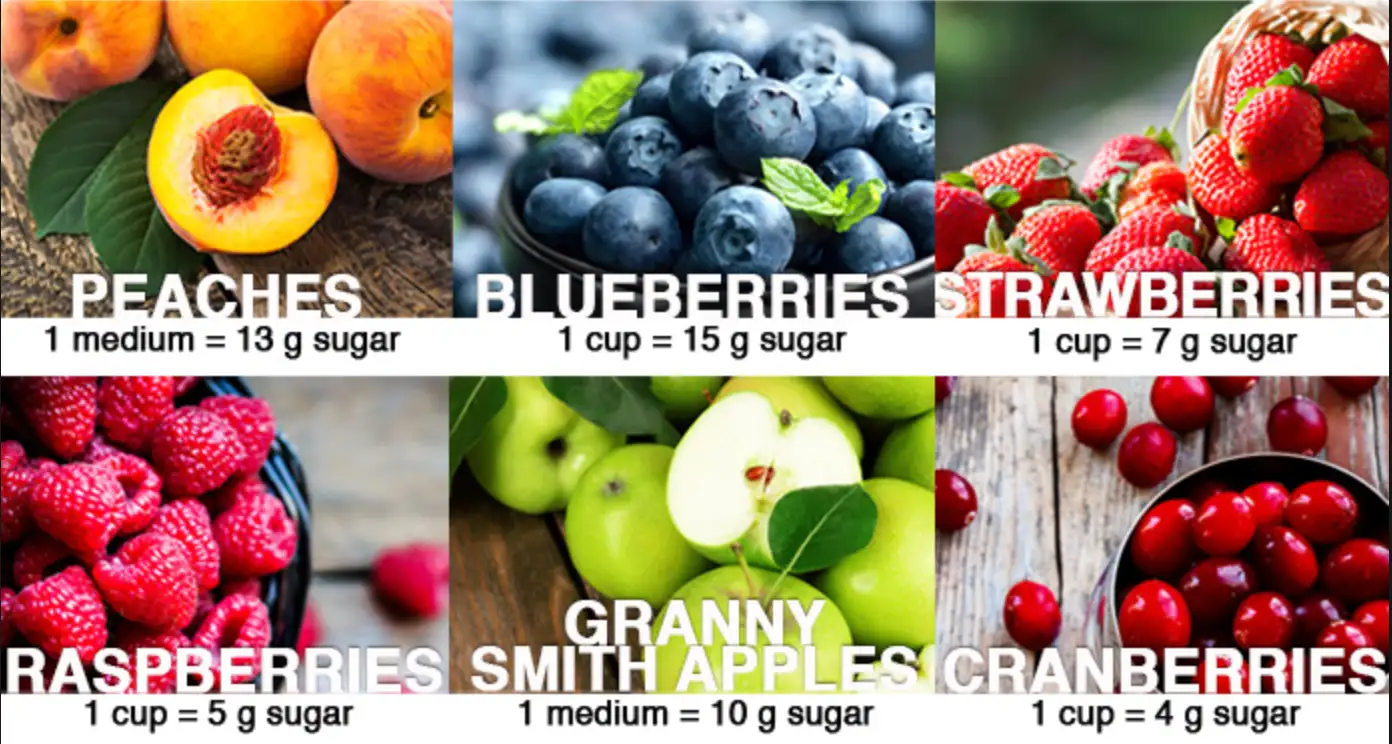The Battle Of The Fruits: Fruits that contain the most sugar VS fruits that contain the least sugar

Most people will probably tell you that fruit is really good for you, especially if you’re dieting and that you can consume it in unlimited quantities. But is that really the truth? Sadly, no. Yes, fruit is certainly high in vitamins and minerals, that much is true; but it also contains quite a lot of sugar and should be consumed in moderation. However, not all fruits are created equal. Certain kinds of fruit contain considerably larger amounts of sugar which will spike your insulin and can even make you gain weight! You should watch out for these:

- Lychees – 29g/cup is quite a sugar rush! However they can be enjoyed in moderation and contain almost twice the daily recommended amount.
- Figs – 27g/cup. On the plus side, they contain significant amounts of fiber and potassium.
- Mango – as yummy as it is, be careful with overindulging. Mangoes contain around 23g of sugar per cup. They are also a good source of vitamin A.
- Cherries – 18g/cup. Again, enjoy them in moderation since they are packed with antioxidants.
- Similarly to cherries grapes are also rich in antioxidants but contain 15 grams of sugar per cup.
- Bananas while an excellent source of potassium contain 14grams of sugar
So what are the fruit you can and should enjoy more freely?
With the lowest sugar content, berries are generally the superheroes in the fruit world.
- Cranberries – only 4g/cup. This tangy delicious fruit is healthy, full of vitamins and diet friendly.
- At only 5g/cup raspberries take second place on our list of delicious guilt free fruity snacks.
- Strawberries – 7g/cup – our summertime favorite.
- Blueberries – very refreshing helps you stay hydrated and only contains about 15g of sugar per cup.
- Peaches – 13g/cup – contain a lot of vitamin A, C and fiber. Their skin is the main source of fibre so there is no reason to peel them.
- Granny smith Apples 10g per medium apple. As they say, an apple a day can keep the doctor away!
Interestingly when it comes to containing vitamins and minerals veggies beat fruit in most cases. But of course moderate consumption of fruit (especially the ones lower in sugar) is perfectly healthy. Berries, in particular contain a lot of antioxidants and vitamins which can improve your health and are an integral part of a balanced diet. Antioxidants, for example, help remove free radicals from the body, and thus offer protection against cancers, aging, infections, etc. Consuming fruit regularly can help prevent heart disease and support digestive health due to high fiber content.
Leading a healthy balanced lifestyle should be a long term goal and not a fad. Therefore it is essential that you enjoy your food day in day out. Tasty fruit snacks or smoothies can definitely serve as dessert and help you remain on track with your healthy life.


